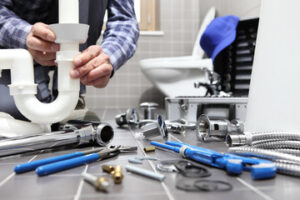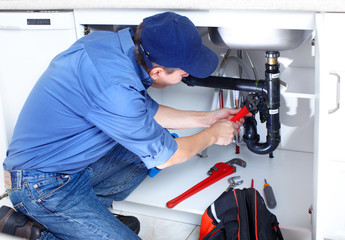What You Need to Know About a Plumbing Company
Plumbing services are a critical part of maintaining a home or business, and a plumber is the person responsible for ensuring that all water-related systems are in working order. Their responsibilities include designing, installing, and servicing residential and commercial plumbing systems. 
They also repair and maintain existing pipes, fixtures, and appliances. They use advanced tools and technology to diagnose and repair problems quickly, which ensures that the job is done correctly and efficiently. Contact Ranger Plumbing Company for professional help.
Local plumbers are the best specialists to call when your toilets or drains get blocked, or you experience a burst pipe or clogged sewer line. They offer comprehensive repairs and installation service to get your life back on track after an emergency. They will first assess the damage and then provide you with advice on the most suitable solution to fix the issue permanently. In addition, they will advise you on preventive measures to stop the problem from reoccurring in the future.
When you’re ready to start your own plumbing business, it’s important to have a well-drafted business plan. This document will help you identify your target market and define your unique selling point. It will also explain the type of services you’ll provide and how you’ll manage your business operations. It’s also a good idea to consult a legal professional to select the right business structure for your needs.
In addition to plumbing, commercial and residential plumbing companies can also perform drain cleaning and install fire sprinklers. This service can protect you from costly repairs and property damage, improve your home’s value, and enhance the safety of your family or employees.
A commercial plumbing company can handle a variety of projects, including installation and maintenance of plumbing systems for restaurants, apartment complexes, retail stores, and office buildings. They can also handle the installation of gas lines for cooking, heating, and cooling systems. Moreover, they can install garbage disposals, water heaters, and other appliances. They can even inspect septic systems and sewer lines to ensure proper installation and operation. Moreover, they can repair and replace broken drainpipes, vents, and other components.
Pricing
A plumbing price list is a key tool for any trade business. It is essential for consumers, too, shielding them from unforeseen charges and encouraging trust in the company. A well-crafted price list reflects the careful consideration of costs, market conditions, and customer expectations. It also provides a framework for establishing fair and competitive rates that ensure profitability.
The pricing of plumbing services varies significantly, ranging from basic fixes to complex projects such as sewage line replacements. The complexity of each job is a major factor, as it influences the time and expertise required to complete the work. Likewise, the type of materials used is another significant consideration. For example, high-quality materials often carry a higher initial cost, but they provide longer-term functionality and can save money in the long run by preventing premature wear and tear.
A reliable plumbing price list will include all relevant fees, including any call-out or travel charges. In addition, it should specify whether the rate is a flat fee or based on hours worked. This allows customers to compare quotes and make an informed decision about which plumber best fits their needs.
The location of the plumbing project also influences prices, as regional market rates may differ. Furthermore, plumbing companies typically charge a premium for emergency service, which adds to the overall cost of the project. A comprehensive plumbing price list will reflect these factors to ensure that the rate is competitive in its local marketplace.
Creating an effective plumbing price list takes time and effort, but it is crucial to the success of a plumbing business. It is important to understand the various factors that influence plumbing rates, including labor, material, and call-out fees. The most successful plumbing businesses will keep these rates as low as possible while still offering quality and reliability. They will also strive to offer preventative maintenance services, which can reduce the need for costly repairs in the future. This will also help to build consumer loyalty and encourage repeat customers. By taking the time to create a comprehensive pricing model, plumbing companies can maximize their profits while maintaining customer satisfaction.
Insurance
Insurance for plumbing companies offers protection against many of the risks associated with this trade. A wide range of policies and coverages are available, with costs influenced by numerous factors. A plumbing business that delves into complex installations may find higher costs, for example, as might one that employs multiple people. The size and scope of the work undertaken will also impact costs, with larger companies able to negotiate better rates than those with just a handful of employees.
Commercial general liability insurance is a must, as it protects the business in the event that an employee or third party sustains an injury or property damage while on the job. It also covers legal fees and compensation that the company might be required to pay in the event of a claim. It should be noted that this policy does not provide protection against claims related to faulty workmanship, however. For that, professional liability insurance might be required.
Workers’ compensation insurance is another must, as it covers medical expenses and lost wages in the event that an employee is injured on the job. The cost of this insurance can vary significantly depending on the state in which you operate and how many employees you have. Inland marine insurance is another necessary coverage, as it offers protection for tools and equipment that might be stolen or damaged while in transit between jobs.
Finally, commercial auto insurance is a must, as it covers the cost of repairing or replacing vehicles that are used for business purposes. A variety of different policies are available, including hired and non-owned auto insurance as well as a business owner’s policy that combines general liability and property coverage in one convenient package.
Choosing the right insurance for your plumbing business is a crucial decision that should not be taken lightly. It’s important to work with an experienced insurance expert who can help you understand the different options available and recommend the best solutions for your specific needs. Contact us today to get started. We look forward to hearing from you!
Licenses and Permits
A plumbing company requires licenses and permits from local authorities in order to operate legally. Some of these licenses are mandatory, while others are optional. The type of license required will depend on the local government and the industry. For example, the City of Philadelphia requires master plumbers to have a license bond and a certificate of insurance that covers liability for workers’ compensation, general property damage, and automobile accidents. To obtain a plumber’s license, applicants must meet certain requirements, including passing a written exam and paying a licensing fee.
Plumbers must also possess a valid workmen’s compensation insurance policy covering all of their employees. This policy must be kept in effect for the duration of all work performed under the permit. Licensed plumbers must also complete 4 hours of approved continuing education courses each year to keep their license current. These courses cover topics such as plumbing codes, installation practices, and safety regulations. In order to qualify for a license renewal, the completed course credits must be reported to the state Department of Consumer Protection before the end of the calendar year.
Those seeking a license as a master plumber must specify on their application the names of all of their employees, and any addition or deletion must be promptly reported to the Town of Irondequoit. Licensed plumbers must also provide a notarized Criminal Offender Record Information Acknowledgement (CORI) form and a 2×2 passport-style photo for identification purposes.
Plumbing companies must register their business name and get a Federal Employer Identification Number (EIN) for tax purposes. They should also apply for local and state business licenses. Choosing the best business structure is essential, and a few options include a sole proprietorship, limited liability corporation, or partnership. A sole proprietorship is easy to set up, but personal assets are at risk for any debts or liabilities the company incurs. A limited liability corporation provides more robust liability protection, but is more complicated to set up and maintain. A partnership is a less formal option, but it can still be difficult to separate the business’s assets from those of the partners.

